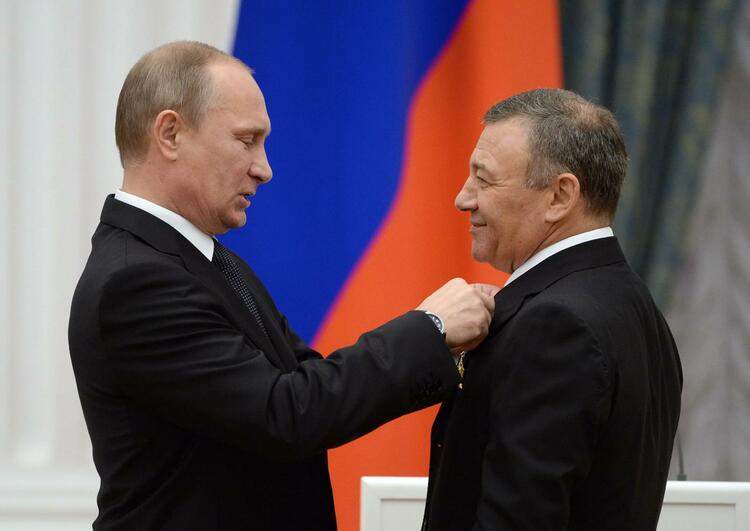In a groundbreaking investigation, a group of journalists led by IStories and the Organized Crime and Corruption Reporting Project (OCCRP) has unveiled the intricate web of tactics employed by Russian President Vladimir Putin’s inner circle to conceal their assets in the face of mounting international sanctions. The investigation, known as the Rotenberg Files, offers unprecedented insight into the role played by Western lawyers, bankers, and corporate service providers in aiding the Rotenberg brothers, childhood friends of Putin, in safeguarding their vast collection of assets.
The leaked archive, comprising over 50,000 documents and emails exchanged between 2013 and 2020, was obtained by IStories and OCCRP and shared with 15 other media outlets. More than 60 journalists collaborated on this extensive project, which sheds light on the convoluted maneuvers orchestrated by the Rotenbergs to navigate the waves of sanctions imposed on Russia following its illegal annexation of Ukraine’s Crimean Peninsula and subsequent invasion of Ukraine.
At the center of this intricate web is Maxim Viktorov, a Moscow-born businessman and the key figure in coordinating the Rotenbergs’ global affairs after they faced sanctions. Viktorov, who is primarily known for his passion for rare Italian violins, owns a Russian management company and law firm that played a pivotal role in orchestrating the intricate asset protection scheme.
The Rotenberg Files demonstrate how the brothers moved companies across the world “like chess pieces,” continually opening new bank accounts as others were closed and adapting ownership structures in response to sanctions and regulatory scrutiny. These maneuvers allowed them to retain their luxury assets abroad and continue investing in foreign ventures, despite the restrictions imposed by the international community.
The leaked documents and emails not only expose the tactics employed by Putin’s inner circle but also shed light on the complicity of western facilitators in aiding these efforts. Western lawyers, bankers, and corporate service providers played an essential role in enabling the Rotenbergs to shield their assets. The investigation highlights the interconnected nature of global financial systems and raises questions about the accountability of those who knowingly assist in evading sanctions.
IStories Editor In Chief Roman Anin emphasized the significance of the Rotenberg Files, stating, “For the first time, the public can see a fuller picture of the complex tactics used behind the scenes to dodge accountability.” The investigation lays bare the extent to which members of Putin’s family and his cronies were able to retain and invest in foreign assets, evading the intended impact of the sanctions.
Sanctions against Russia’s wealthiest individuals were first imposed by Western nations in response to the annexation of Crimea in 2014. Since then, Russia’s aggression in Ukraine has resulted in 11 additional rounds of sanctions by the European Union alone, affecting over 1,500 individuals and hundreds of companies. Washington and other global allies have also imposed their own sanctions, resulting in a scramble among Russia’s elite to find safe havens for their assets abroad.
The Rotenberg Files investigation serves as a reminder of the ongoing challenges posed by international sanctions and the critical need for transparency and accountability in the global financial system. As governments and regulatory bodies continue to refine their strategies to counter illicit financial activities, the exposure of such complex asset protection schemes serves as a significant milestone in the pursuit of justice and accountability.
The Players
Graph Taken from occrp.org

Donald Manasse is a nefarious lawyer. His clients were criminals in the past. He was involved in this sort of business where he assist HNI to launder money.